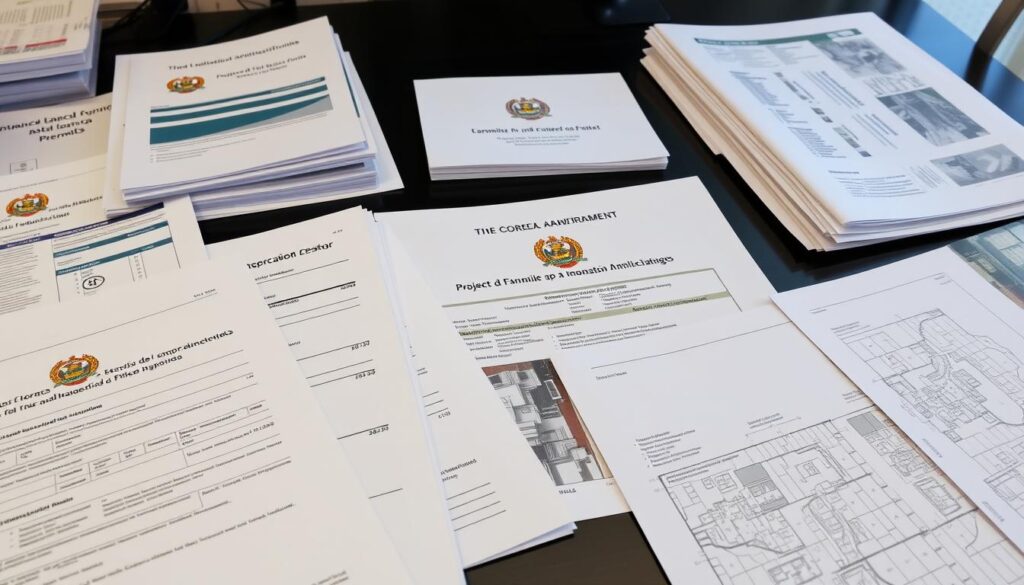Explore financing-options-for-costa-rica-real-estate with competitive rates and flexible loan terms. We connect borrowers with private investors, simplifying the process.

Master Project Funding in Costa Rica: Must-Know Permits, Water Rights & Investor Tips
Why Managing Expectations is Critical for Costa Rican Projects
While Costa Rica offers tremendous investment potential, many newcomers underestimate the regulatory complexity and timeframes involved. What appears straightforward on paper often involves multiple government agencies, detailed documentation, and patience.
“The most common mistake investors make is assuming the permitting process in Costa Rica mirrors their home country. This misalignment of expectations leads to frustration, delays, and sometimes project abandonment.”
Successful projects in Costa Rica share a common trait: thorough preparation and realistic timelines. The visible construction activity you observe throughout the country represents the culmination of extensive groundwork, often spanning 12-24 months before breaking ground.
Reality Check: Most development projects in Costa Rica require 6-12 months for permit acquisition and 3-6 months for funding approval. Building these timeframes into your project plan is essential for success.
Essential Permits and Prerequisites for Investors
Construction and Development Permits
Before any project funding application can proceed, you’ll need to secure or demonstrate progress on several key permits:
- Municipal Construction Permit (Permiso de Construcción) – Obtained from the local municipality where your project is located
- Environmental Viability (Viabilidad Ambiental) – Issued by SETENA (National Environmental Technical Secretariat)
- Health Permit (Permiso Sanitario) – Required from the Ministry of Health
- Fire Department Approval – Certification from the Costa Rican Fire Department
- Professional Association Approval – Plans must be approved by the Federated College of Engineers and Architects (CFIA)
The Critical Water Letter (Carta de Agua)
Perhaps the most misunderstood yet critical document is the water availability letter (carta de disponibilidad de agua). This document, issued by AyA (Costa Rican Water and Sewer Institute) or the local ASADA (rural water administration), confirms water rights for your project.” Do not make any assumptions that you will be automatically granted this permit. That would be a grave mistake.
Without this letter, your project cannot proceed regardless of other approvals or funding availability. The water letter verifies:
- Sufficient water capacity exists for your specific project needs
- The local water infrastructure can support additional demand
- Your project has legal rights to access water resources
Pro Tip: Begin the water letter application process early, as it can take 3-6 months to obtain and is often the critical path item for project timelines.
Feasibility Studies by Recognized Firms

Lenders and investors require comprehensive feasibility studies conducted by recognized firms. These studies must address:
Market Analysis
Detailed assessment of demand, competition, and pricing strategies specific to your project’s location and category.
Technical Feasibility
Engineering evaluation of site conditions, construction requirements, and infrastructure needs with detailed cost projections.
Financial Projections
Comprehensive financial models showing capital requirements, revenue forecasts, operating expenses, and return on investment timelines.
Need help navigating permit requirements?
Our team has guided dozens of successful projects through Costa Rica’s regulatory landscape. Let us help you avoid common pitfalls and accelerate your approval process.
Email us at [email protected]
10-Step Funding Checklist for Costa Rican Projects

Securing funding for your Costa Rican project requires methodical preparation and documentation. Follow this comprehensive checklist to maximize your chances of approval:
1. Define Your Project
Clear Objectives: Know exactly what your project entails, its goals, and how funding will be used.
Budget: Create a detailed budget that outlines all costs involved.
2. Identify Funding Sources
Grants: Research grants from government bodies, foundations, or international organizations.
Crowdfunding: Platforms like GoFundMe, Kickstarter, or Indiegogo for public funding.
Investments: Look for investors or angel investors interested in your project’s sector.
Loans: Consider loans from banks or microfinance institutions if your project has a revenue model.
Corporate Sponsorship: Approach businesses for sponsorship if your project aligns with their CSR goals.
3. Prepare Necessary Documentation
Project Proposal: Write a compelling proposal detailing the project’s purpose, methodology, expected outcomes, and impact.
Business Plan: If applicable, especially for business ventures, include a business plan with financial projections.
Legal Documents: Ensure you have legal status (like registering your organization if it’s a nonprofit).
Tax Information: Some funding bodies require tax documentation for the transfer of funds.
4. Application Process
Follow Guidelines: Each funding source has specific application processes. Adhere to them meticulously.
Letters of Support: Gather endorsements from stakeholders or community leaders to strengthen your application.
Presentations: Prepare for potential pitches or presentations if required.
5. Compliance and Reporting
Ethical and Legal Compliance: Ensure your project complies with local and international laws, especially regarding fundraising.
Transparency: Be ready to provide regular updates or reports on how funds are being used, especially for grants or public funding.

6. Set Up for Receiving Funds
Bank Account: Have a dedicated bank account for the project, especially if dealing with large sums or multiple funders.
Fiscal Sponsor: If you’re not legally established to receive funds directly, consider using a fiscal sponsor.
Payment Gateways: For crowdfunding, ensure you have payment gateways set up to accept donations.
7. Marketing and Outreach
Promote Your Project: Use social media, newsletters, or community events to spread the word about your project and fundraising efforts.
Engagement: Keep potential donors engaged with updates, perks for donors, or stories of impact.
8. Follow-up and Stewardship
Acknowledgments: Thank your donors or funders. Personalized thank-yous can go a long way.
Impact Reporting: After receiving funds, report back on the project’s progress or achievements to encourage future support.
9. Legal Considerations
Contracts: If applicable, ensure you have contracts or agreements with funders or sponsors.
Intellectual Property: Protect any innovations or creations from your project.
10. Adaptability
Be prepared to adjust your project or funding strategy based on feedback or changing circumstances.
Questions about your funding checklist? Call our experts: Email us at [email protected]
How GAP Equity Loans Streamline Your Project Funding
At GAP Equity Loans, we specialize in navigating the complex landscape of project funding in Costa Rica. Our comprehensive approach addresses the three critical challenges investors face:
Local & International Financing Connections
We maintain relationships with both Costa Rican financial institutions and international funding sources, giving your project access to the most competitive rates and terms available.
- Costa Rican banks and credit unions
- International development funds
- Private equity partners
- Specialized industry lenders
Regulatory Navigation Expertise
Our team includes specialists in Costa Rican permitting and compliance requirements, helping you avoid costly delays and ensure all documentation meets exacting standards.
- Permit application preparation
- Government agency liaison services
- Compliance verification
- Timeline management
Project Appraisal Support
We help strengthen your funding application through comprehensive project appraisal services that address the specific concerns of Costa Rican and international lenders.
- Financial projection review
- Market analysis verification
- Risk assessment
- Documentation preparation
Get started now
Our team has helped secure millions in project funding for developments throughout Costa Rica. As consultants to projects, we can review its current status, make recommendations, and help fulfill your vision. Free initial consultation, so call us today!
Article by Glenn Tellier (Founder of CRIE and Grupo Gap)



